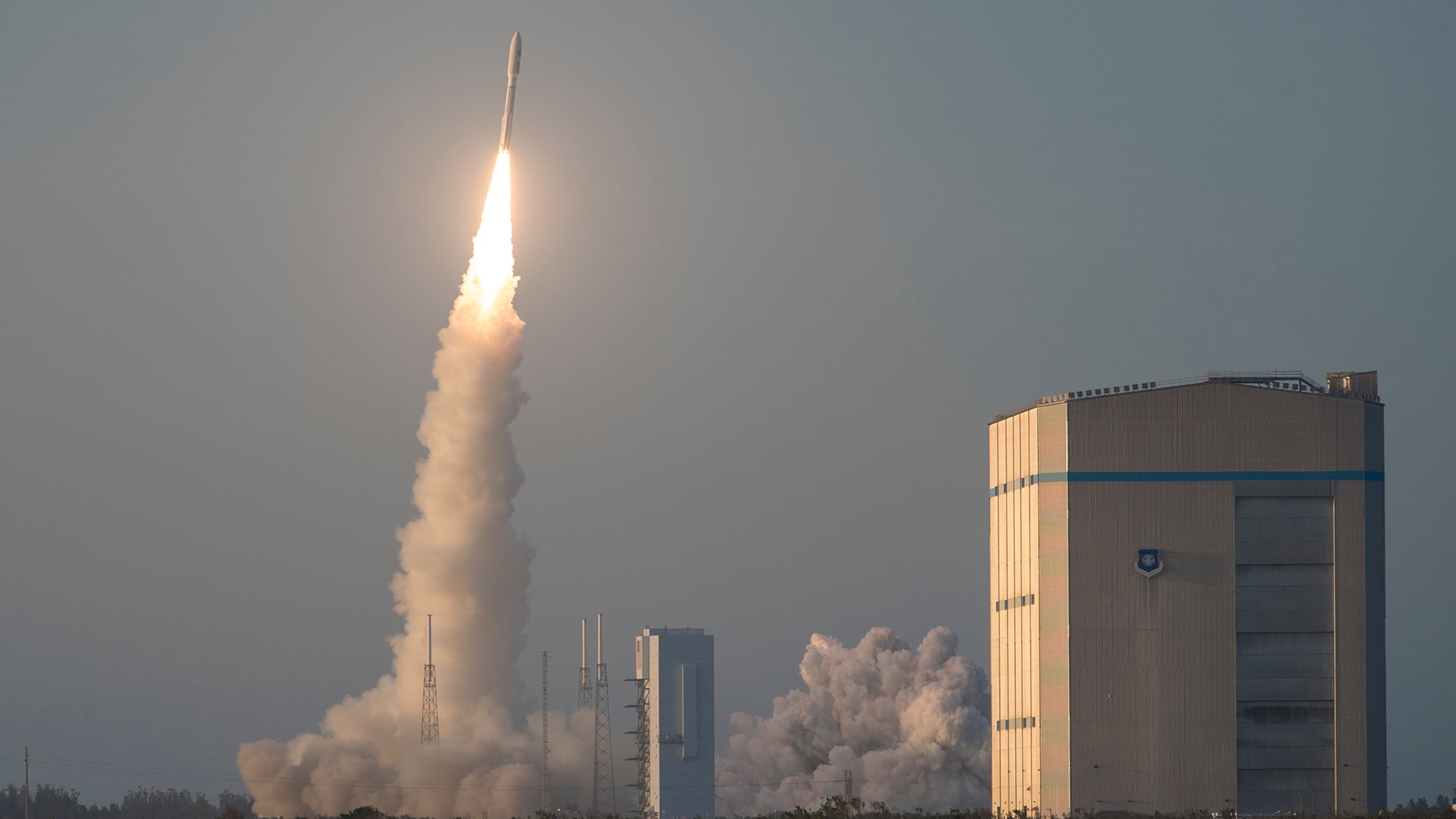WASHINGTON — Acting Secretary of Defense Patrick Shanahan has identified who he wants to lead U.S. Space Command, and work is underway on the confirmation process.
However, when it comes to a name, Shanahan is keeping things close to his vest.
“We do have a person we’re going to move through in terms of who would lead the Space Command,” Shanahan told press at the Pentagon on Tuesday. “I’m not going to mention the individual’s name. That is moving the way through the process.”
In December, President Donald Trump signed the order to create Space Command, with the goal of overseeing and operationalizing U.S. efforts in space. The command’s creation is seen as the first step toward an eventual Space Force, a new branch of the military sought by Trump; Defense News first reported that the Pentagon plans for that force to reside under the Air Force, similar to how the Marines reside under the Navy.
RELATED

Expected to cost about $800 million, the command will pull about 600 staff from existing military space offices at its creation. The command will be led by a four-star general and a deputy.
While Shanahan has previously said he sees experience with space issues more as a nice-to-have than a must-have for the top spot, there is expectation that Gen. John Raymond, commander of Air Force Space Command, is a leading candidate to lead the command.
It is expected more details on Space Command, including where it will be based, will be shared around the release of the fiscal 2020 budget.
As deputy secretary, Shanahan served as the point man for the department’s space reorganization efforts. While taking on additional responsibilities since replacing Jim Mattis in the top spot, Shanahan indicated he plans to continue the focus on space.
The acting secretary also acknowledged the need to work with Capitol Hill, where some lawmakers have expressed skepticism about the various space plans put forth from the department.
“When I go up on the Hill and talk to members about where they have concerns and where their interests are, they’re very focused on how do we not grow a bureaucracy, how do we not generate unnecessary costs. When we talk about the Space Force, and I think about the discussions we’re going to have over the next five to six months, it’s going to be small, as small as possible [a] footprint,” he said.
Aaron Mehta was deputy editor and senior Pentagon correspondent for Defense News, covering policy, strategy and acquisition at the highest levels of the Defense Department and its international partners.








